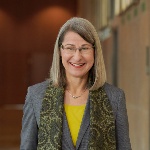Freedom: A term that polarizes
“Hardly any other term is currently as polarizing as the concept of freedom. That's why we want to counter collective pessimism with sustainable experiences of freedom,” explains Elke Uhl, Managing Director of the International Center for Cultural and Technological Studies (IZKT). What forms of freedom will be possible in the future is controversial. Can the experience of freedom be decoupled from resource consumption? What will our freedom look like in 2049, when the Basic Law celebrates its 100th birthday? The debate often follows an all too familiar pattern: A concept of freedom that emphasizes independence, individual self-realization, and a radical skepticism toward the state has migrated from the left to the right political fringe. Forms of diffuse hostility toward the state show that "freedom" can become a buzzword that threatens democracy.
The debate is usually correspondingly unproductive: While some call for consideration for future generations, others point to the danger of a nanny state. With the project "Future freedoms: Reports from the post-carbon society of 2049,” scientists, Stuttgart citizens, and social actors are trying to counteract these standardized arguments by "grounding" the debate and starting with everyday experiences of freedom such as flying, building, eating, and driving.
Engaging in dialog: Transdisciplinary project seminar
“In our project, we want to invoke political imagination,” says Prof. Felix Heidenreich, scientific coordinator at the IZKT. In a transdisciplinary and cross-university seminar, students address the concept of freedom from a theoretical-historical and an artistic perspective and are in a continuous exchange. Students from the Merz Akademie are working in a temporary freedom workshop in Stuttgart's Hospitalviertel district, where they are gathering ideas for “speculative documentaries” in an exchange with citizens and experts from various disciplines. The “speculative documentary” is a new format in science communication that is based on the everyday knowledge and experiences of those involved. It makes possible futures tangible and is intended to create confidence: “We imagine that what Europe set out to do has actually been done. It's not that easy. Imagining the apocalypse is much easier,” explains Prof. Peter Ott from the Merz Akademie.
Freedom workshop: Atelier Leuschnerplätzle
The freedom workshop is just a few steps away from Leuschnerstrasse in Stuttgart. In 1849, the "Stuttgart Rump Parliament" was the first pan-German democracy movement to be crushed by military force. With the support of the Forum Hospitalviertel e.V. association, the project partners are using a vacant office space as "Atelier Leuschnerplätzle" until the end of September. The studio is a collective place where people with different knowledge and experiences can meet and discuss concepts of freedom in various dialog formats, such as a regulars' table. The exhibition "Looking back. Looking at. Looking forward" focuses on the history of the rump parliament as well as past and future concepts of freedom.
A look into the future: Speculative documentaries
The speculative documentaries created from the ideas developed in the freedom workshop and the expert interviews deal with the practiced freedoms of flying, building, eating, and driving. In the fall of 2024, these "Reports from the post-carbon society of 2049" will be premiered and discussed in the four-part series "Film & Discourse" at the Hospitalhof Stuttgart. The documentaries will also be shown in a "future cinema box" in the city. The project will end with an interactive closing event in the format of a House of Commons debate.
About the project
Under the leadership of the International Center for Cultural and Technological Studies (IZKT) at the University of Stuttgart, the Merz Akademie - University of Applied Arts, Design and Media and the Ludwigsburg University of Education are involved in the project. "Future freedoms: Reports from the post-carbon society of 2049." is one of 35 projects that the Federal Ministry of Education and Research (BMBF) is funding as part of the Science Year 2024. A total of 320 project outlines were submitted.
About the Science Year 2024 - Freedom
The theme of the Science Year 2024 is freedom. This is because freedom is of fundamental value and is under threat in a way that has long been unimaginable. Two upcoming anniversaries underline its importance for Germany: 75 years of the Basic Law and 35 years of the fall of the Berlin Wall. The Science Year 2024 is therefore focusing on various dimensions of freedom. What exactly is freedom? Are freedom and democracy connected? Where does freedom begin? With plenty of opportunities to get involved, the Year of Science provides a framework for intergenerational discussions about freedom, its value, and its meaning – in dialogs among citizens and with scientists. About freedom today, tomorrow, and worldwide.
The Science Year is an initiative of the Federal Ministry of Education and Research (BMBF) together with Wissenschaft im Dialog (“science in dialog”, WiD).
Expert Contact:
Dr. Elke Uhl, elke.uhl@izkt.uni-stuttgart.de, phone: +49 711 685-82379
Aline Riedle, aline.riedle@izkt.uni-stuttgart.de, phone: +49 711 685-84103
Further information on the project and its events can be found on the project-website and via the IZKT`s social media channels.
Contact

Jutta Witte
Dr.Scientific Consultant



